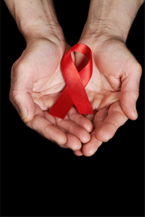All HIV/AIDS Medications
Your source for essential HIV/AIDS.
All HIV/AIDS Medications
Don't have time?
Quick Order
Upload doctor's prescription and we will find the cheapest medication available.
If you have any
Questions
call us toll free
1-877-536-8162
OR Email us at
info@onlinepharmaciescanada.com
 What is HIV/AIDS?
What is HIV/AIDS?
HIV, or human immunodeficiency virus, is a virus that eventually causes acquired immune deficiency syndrome, AIDS. This virus weakens the body’s ability to fight off infections and cancer. Those infected with HIV are said to have AIDS when they either develop certain infections or cancers, or when their CD4 count becomes lower than 200.
However, having HIV does not necessarily mean you have AIDS. While HIV does cause AIDS, it may take years to develop AIDS. However, there is no current cure for HIV/AIDS, but there are certain treatments that help to prevent the development of AIDS and try to maintain the person’s health for as long as possible. Once a person develops AIDS, death is generally expected relatively soon after, due to an AIDS-related cause, such as an infection that your body will no longer be able to stop.
What are the symptoms of HIV/AIDS?
After becoming infected with HIV, you may not have any symptoms. This period could last a very short time, such as a few months, or an extremely long time, for example many years.
The virus will continually multiply and infect and destroy the cells of the immune system. As the immune system slowly becomes compromised, our body’s ability to combat bacteria, viruses, and other infections becomes severely decreased. Some symptoms that a person infected with HIV might develop after many CD4 or T4 cells have been destroyed could include: lack of energy; weight loss; frequent fevers and sweats; persistent or frequent yeast infections; persistent skin rashes or flaky skin; short-term memory loss; mouth, genital, or anal sores from herpes infections.
AIDS develops after a person is infected with HIV. A person is said to have AIDS if the CD4 cell count is below 200 or if the person has HIV and one or possibly more opportunistic infections. Practically every organ system is affected by AIDS. Common symptoms of AIDS may include: cough and shortness of breath; seizures and lack of coordination, difficult or painful swallowing, mental symptoms such as confusion and forgetfulness, severe and persistent diarrhea, fever, vision loss, nausea, abdominal cramps, and vomiting, weight loss and extreme fatigue, severe headaches with neck stiffness, or coma.
Additionally, those with AIDS are more likely to develop various cancers like Kaposi sarcoma, cervical cancer, and cancers of the immune system (lymphomas). After a person is diagnosed with AIDS the average survival period is about 2-3 years.
What Causes HIV/AIDS?
AIDS is caused by HIV. A person can become infected by HIV when another person’s bodily fluids (blood, semen, fluids from the vagina, or breast milk) enter the bloodstream. The virus can enter the blood through linings in the mouth, anus, sex organs, or broken skin. Additionally, both men and women can spread and become infected with HIV/AIDS, and pregnant women with HIV can spread the virus to their babies.
The most common ways of becoming infected with HIV/AIDS is by sharing needles or having unprotected sex.
What Increases My Risk of Developing HIV/AIDS?
Participating in certain activities will significantly increase the risk of becoming infected with HIV/AIDS. Among these activities is, having unprotected sex, sharing needles, receiving a blood transfusion (HIV infection is highly unlikely from blood transfusions in the US and Europe as the blood is tested before being used), being born to a mother who is HIV+.
How is HIV/AIDS Diagnosed?
HIV is diagnosed by a standard HIV test. If a person with HIV infection has a CD4 count that drops below 200 or they develop an opportunistic infection, they will be considered to have AIDS.
How is HIV/AIDS Treated?
After HIV infection is confirmed, your doctor will start you on a drug regimen consisting of several drugs; combinations of different types of anti-HIV drugs sometimes are called HAART, for highly-active anti-retroviral therapy (HIV is a kind of virus called a retrovirus). If your HIV develops into AIDS your doctor may give you additional medications to fight and prevent infections.
Medications for HIV/AIDS
Sustiva, Mycobutin, Viread, Retrovir, and Septra are just a few of the many medications used to combat HIV/AIDS or to prevent infections that could become dangerous. Talk to your doctor about which medications would be best for you.








 What is HIV/AIDS?
What is HIV/AIDS?